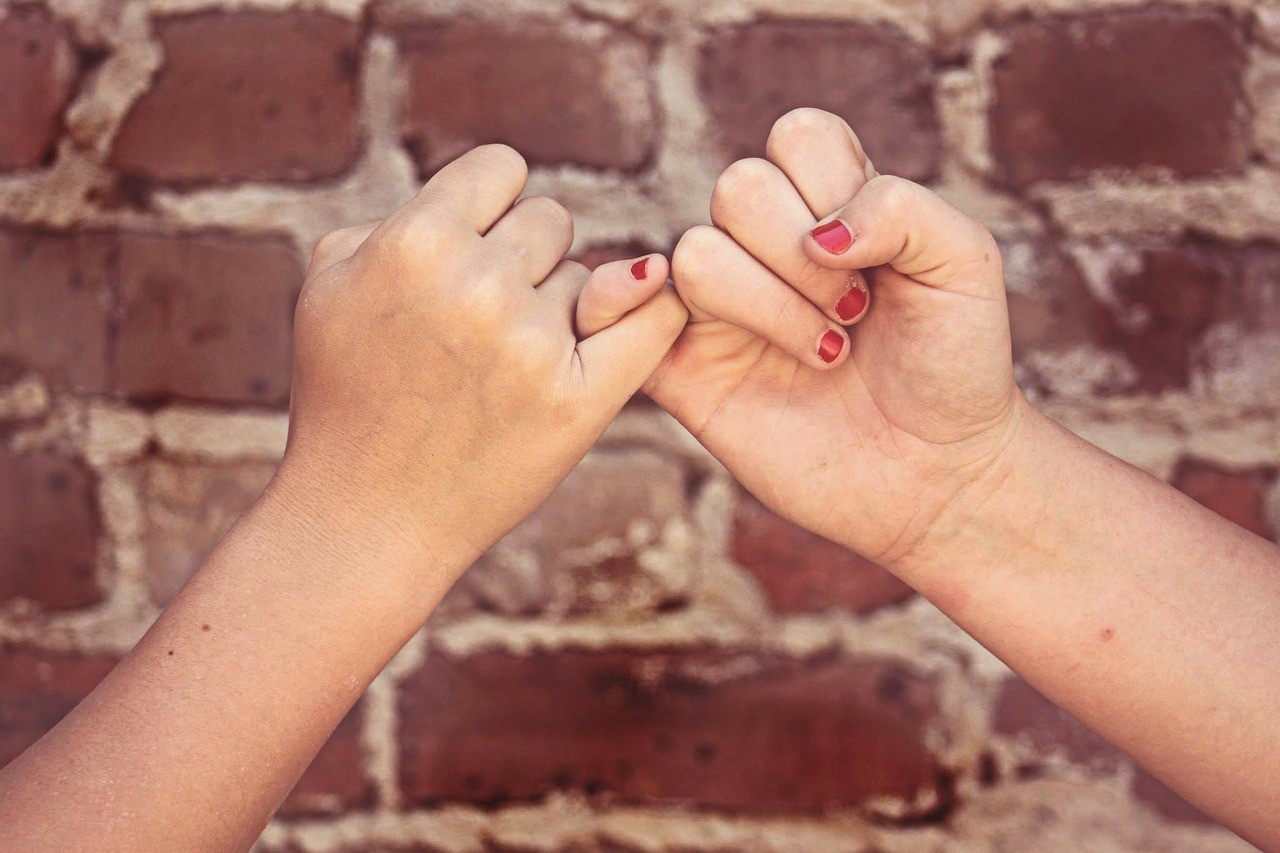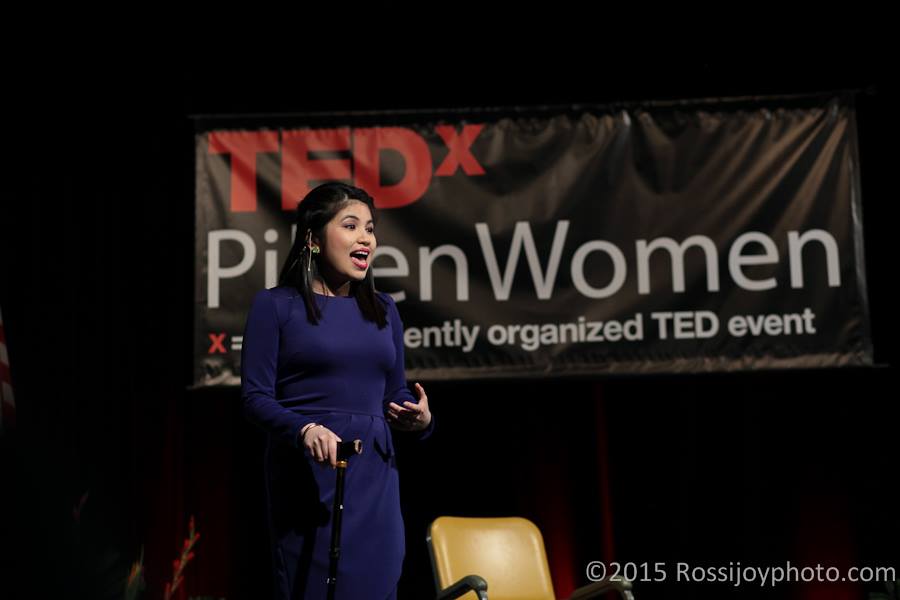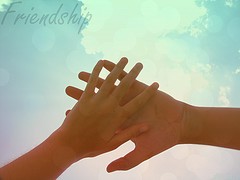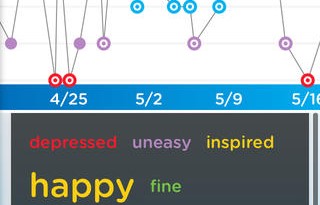5 Tips for Reconnecting with a Sick Friend

One of the most painful things about being sick is having friends abandon you. When I wrote 5 Reasons People Abandon a Sick Friend in 2014, I was shocked by the sheer number of readers sharing their stories–friends who left after they got diagnosed with a mental illness, lupus, fibromyalgia, myasthenia gravis (like me), POTS, CRPS, and other diseases, or people who lost friends after experiencing tragedies like strokes, heart attacks, and car accidents. It was heartbreaking. As I wrote in my article, it’s more complicated than “true” friends versus “fake friends” although that is sometimes the case. I also have heard from healthy people who read this blog who feel guilty for abandoning their sick friends and want to know how to restore those relationships. I’m not a fan of preaching to people (saying “you should forgive”) because I don’t know the particulars of each person’s story, but personally, I believe in second chances. While most friends who left me never returned, there have been a few beautiful instances of reconciliation.
The worst case of a friend leaving happened in 2008 when I was 24-years old and diagnosed with and hospitalized in critical condition with myasthenia gravis (MG). The day I was hospitalized, a good friend from high school, Ken, told me he would visit me the next day. He never came. Somehow, days turned into weeks, which turned into years. And I never saw him again. Adding insult to injury, we lived in the same neighborhood! So, if you’re not in the mood to hear about forgiveness, I understand if you skip this blog post. Your pain is real. I also know that I am not a perfect person. If you’re a healthy person reading this who feels regret or wants to understand your sick friend better, I get that too.
5 Tips for Reconciling with a Sick Friend:
#1: Really Apologize: When famous people say terrible things, they usually double down on their remarks. We hear faux apologies like, “If you were offended or took it the wrong way, I’m sorry.” I had a refreshing experience over the holidays when I saw a friend I hadn’t seen in a decade. We were very close in high school and throughout most of college. In fact, she was a supportive friend to me after I was diagnosed with bipolar disorder (diagnosed at 18). At some point, she moved away and never told me. We lost touch. So she wasn’t there when I got sick with myasthenia. She asked my help in dealing with a relative’s illness. Of course, I said yes. Our first night having dinner in years, she said, “I’ve been a terrible friend. I’m sorry.” Truly, that was all I needed to hear. She meant it, and I don’t hold anything against her. Contrast that with other friends. I once ran into an old friend I used to go to church with for years who stopped talking to me after I got diagnosed with myasthenia. Some of her relatives including her parents (that she lived with) visited me in the hospital. I never understood why she left. All these years later, after T and I ran into each other, we agreed to have lunch. She explained her absence along the lines of, “I would have visited. I didn’t really know where you were.” For whatever reason, the subject makes her uncomfortable. But without that honest discussion–similar to the kind I had with my high school friend–our relationship exists on a somewhat superficial level. Our friendship is not what it used to be.
#2: Change: Apologies are nothing if they’re not accompanied by change. (I can’t contact every friend who left me post-diagnosis. With five illnesses, I’m constantly trying to keep up with my jobs. I do it well but I have almost no free time. Illness is a full time job.) There have been a few instances where I did ask friends why they didn’t visit. One of my best friends from college said, “Are you supposed to visit? I didn’t know that.” He had no experience with loved ones in the hospital. Throughout my childhood, my family was visiting loved ones with cancer so this was common sense to me. He did make it a point to visit me after our conversation. Today, we are more than friends–he frequently checks up on me and makes me laugh through the pain. He says I am the sister he never had. I am an only child; he truly is the brother I never had.
#3: Communicate in Your Friend’s Preferred Method: Some people, like me, prefer talking over the phone or in person–especially if it’s about something serious–not social media. (I only joined Facebook in 2011!) Other people prefer text messages, Facebook, and gchat. I’ve learned to apologize to friends using their preferred method of communication.
When I get an instagram request from someone who left me post-diagnosis–someone that I spent numerous holidays with, knew for a decade, and I’m sure has my phone number (or knows someone who does), that confuses me. I get Facebook requests from strangers, bullies from elementary school, and random people (that I think are friending me because they read my blog) but who instead propose marriage! A good friend stopped talking to me the day I was diagnosed with myasthenia. In our last conversation on the phone, she seemed choked up and said, “Take care of yourself.” (I was kind of confused as she had been a supportive friend during my previous struggles with polycystic ovarian syndrome, PCOS.) I hadn’t heard from her in six years and suddenly, she sent me a Facebook friend request. I didn’t reject but I didn’t accept it. In our insta-world where we’re all on tablets, I think we use the word “friend” too casually. I cherished our friendship too much to put her on the same level as bullies and random men proposing marriage. A few days after sending the request, she sent me a long email apologizing for the end of our relationship. She said she hoped we could be friends again. Instantly, I forgave her and I look forward to rekindling our friendship.
#4: Keep Inviting Your Friend: You never know what your friend can or can’t do. In July, I danced a lot at my family reunion. (I used to take a lot of ballroom dancing classes before I got sick.) This week, I was invited to a friend’s 30th birthday party, which involved going to a salsa club. I tried my best but couldn’t make it. Still I was grateful for the invitation. Next month, I will take her out for a birthday lunch.
#5: Acknowledge That Your Friend’s Illness is Real: Sometimes, friends and family minimize the depth of our pain especially if the illness is invisible. I hear stories from readers with fibromyalgia all the time who hear, “You have a fake disease.”
Fashionably ill reader, Laura S, said, “You can’t have a healthy relationship with someone who doubts you, or gets hurt whenever your symptoms get in the way of their (and our!) wants and needs. Then second for me, personally, is for people to keep inviting us to activities, or simply keep in touch, even though we have to say no or maybe (which often leads to no) so often. I had to miss several vacations with my family because of various illnesses, and eventually my mom just stopped inviting me, and I’d hear ‘oh we’re going here/doing this’ days before they go off somewhere, without enough time for me to join in, even if I was asked…I just want to be included. I want them to ask what I CAN do, and plan something around that, instead of just doing the same kinds of things, and leaving me out.”
Your Story?
Have you ever reconnected with a friend?
–Your Stylist, Jessica Gimeno





Dear readers,
Please forgive the use of all-caps — for some reason this website will not publish lower-case letters.
Jessica, Thank you for your post. It deeply touches me. I live with several chronic illnesses and the aftermath of a brain injury … and I have lost several dear friends, two this year, both friends of over 20 years. i live alone and have very few people i can count on; this is terrifying.
I don’t believe that any illness or injury is invisible … there are only eyes that have not yet seen; people who do not yet understand (that is our responsibility to inform them and hope they will be of open mind and heart) … and people who will not make the effort to understand. There is a story beneath the surface of every human being, and many (most?) of us do our damndest to hide what is most vulnerable in us. We do not want to appear sick, weak, fragile … this is part of our mammalian heritage, our genetic need to appear and be strong in order to face the world’s challenges and dangers, to stay upright and functional. Those of us with “invisible” conditions double down on the attempt to appear vital and healthy … and that may be part of what confounds healthier people. — “You look fine! what could possibly be the matter?” we can do more harm and injury to ourselves by the lies we sometimes tell ourselves and others … pretending to be in better shape than we are. Deep shame so often accompanies the conditions that are not immediately apparent, especially those whose illnesses/injuries are based in brain injury (and I include the “mental illnesses” here).
we don’t want to admit any weakness, especially illness … for this reminds us of our mortality … and we are not given any mentoring in the dominant culture to view injury and illness as opportunities to share our common humanity, to offer solace and help. There but for the grace of God — or plain bad luck or genetics or what have you — go all of us.
patience, kindness, and presence are our best medicines, and so many of us do not know how to be present in the face of pain. we run from it; we fear it. we fear that an ill or injured person will weigh us down; will become a ball and chain around our busy lives. we fear that we may be next, and we don’t want to be reminded of that possibility.
Very, very few people will stand with us when illness or the effects of injury last a long time; we live in a culture that demands we ‘pull up our socks’ and get back to being incessantly busy, productive, useful. (I think of workplaces which commonly offer only a few days of bereavement leave after a death … commonly, three days! — more often than not, the funeral hasn’t even been conducted, and the bereaved are still in a state of raw shock…)
It is a tragedy, for we will all need hands-on help and support at some time in our lives.
i have found, again and again, that it is (usually) only people who share this struggle who will do what they can to be of help. And they tend to tire because of their own challenges. They need not apologize … they do the best they can.
I am glad that you have received some apologies and that some of your friendships have been restored. It may be that those who disappeared simply didn’t (don’t) know *what* to do in the face of your illness. Some run simply because their characters are selfish and cowardly … they don’t want anyone or anything to get in the way of their go-get-’em lives.
I wish you continued and thriving friendships, and thank you so much for your most thoughtful post. May you thrive and be as well as you can. you are a brave soul!
sincerely,
juji
Dear Juji,
Wow! Thank you so much for being open and honest. You are a very good writer! It reminds me that sharing my story is worth it…even if touches one person. I am blessed to hear your story and I agree with you that some people are afraid, others don’t know what to do, among a myriad of other reasons. It is complicated. Living with a chronic illness is like reliving a tragedy over and over again, which I recently wrote about in, “Chronic Illness is Like Getting Your Heart Broken Again & Again.” If you want to bond with other people like us, check out our community on Facebook. Also, you can join my newsletter here, which is a more intimate thing than my website–I share a lot on there. And if there is a subject you’d like me to write about, let me know and I’ll try my best. It’s very nice meeting you.
–xoxo, Jessica
i am constantly checking out the invisible illness page set up on facebook and often reads articles there about what is chronic and invisible illness all about. i educate myself because i am currently engaged to a guy who suffer rare chronic pain disorder. just last night, we talked again about how his illness changed his life. he got it when he was 23 years old and he is 32 now. after he got his disorder, friends slowly left him and even got to the point where his family didnt believe him. although one of his siblings and his dad stands by him, his disorder somehow made his family fall apart.he came to a point where he absolutely doesnt have human contact for few years. like a prisoner in his apartment with his computer to play games and tv shows to watch to get on the day. i feel like my heart was being crushed as my fiance tell me this story on what it is like during early years of him being sick.
he is also used to being left out by his family to some family gatherings. sometimes he is surprised that his siblings is in town because they didng tell him.he will find it out from his parents few days after.he always see to it that he reaches out to them although most of the time, the treatment he gets is just as far as being civil to each other.
we are currently in a long distance relationship and its hard for me seeing him in that situation without me beside him. all i hope now is that we will be able to find a support group near his area where he can find new friends and would understand what he is going through too.
the story i told you above is vague just a rough summary of what his disorder. please excuse my sentence construction too as i am not an american and my native tongue is not english.
thank you for giving time reading my email.
Hi Tash,
Don’t apologize for anything–your English is fine! Thank you for taking the time to share your story. I think it’s enlightening to hear how our illnesses affect those who love us the most. I really feel for your fiancé and all that he’s been through. And I wish I could do more to help. I appreciate you taking the time to educate yourself on invisible and chronic illnesses; the world needs more people like you. Bless your heart.
Thanks for the stories.
Being a generally healthy person I still always find this blog timely for some current situation I’m thinking about. “People who abandon a sick friend’ This time its about an older neighbor who has a few different illnesses, she has a son and husband that wont help her with anything and she feels like they’ve abandoned her since she got ill, even though they all live in the same house. I’m like trying to help her with the property as much as I can, cutting the weeds that I noticed had grown almost as tall as me and I’m 6 feet even. I’m always picking up for her. I just enjoy speaking with her, she’s so knowledgeable and we have great conversations and she has so much to offer in the wisdom department. I wish they would recognize this. I feel a bit sad thinking about when I move away.
The other thing is sort of a question. I’m always interested in lifting peoples spirits, but I wonder if it’s okay to say to a sick person something like “Hey I think they’ll cure that someday’ or “with the invention of new technology they will probably cure diabetes in a few years”
I watched a film Call “You’re still You” with Hilary Swank, she has ALS in the film and she got upset when someone mentioned “experimental pills” She says she getS tired of people saying stuff like that.
I THOUGHT SAYING SOMETHING LIKE THAT WOULD GIVE A PERSON HOPE ONCE, BUT THEY JUST GOT QUIET. tHAT MADE ME THINK MAYBE IT WASNT A GODO IDEA.
Pingback: stuck between compassion and pity – Lupus Care Community